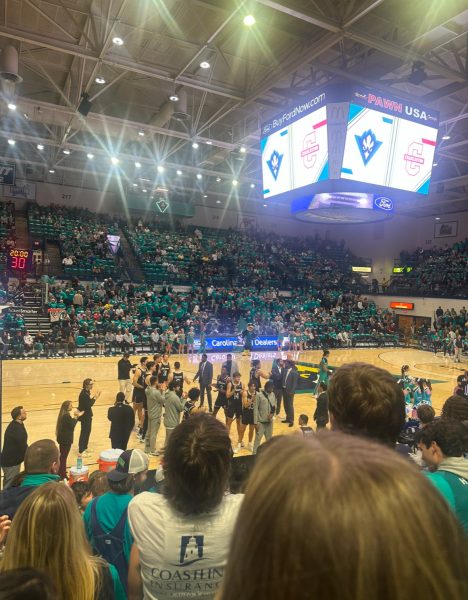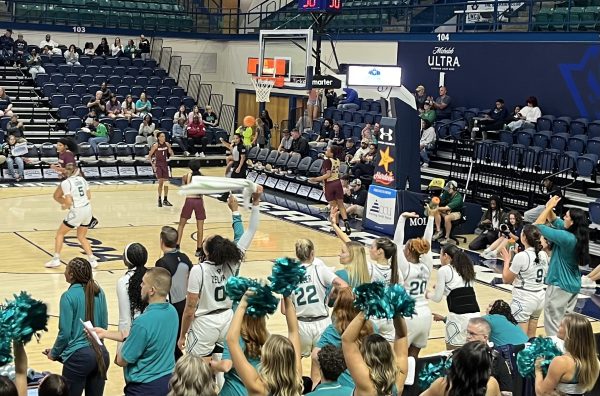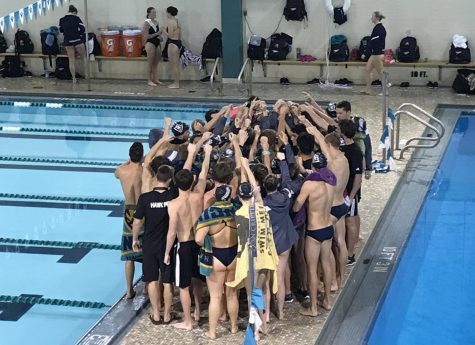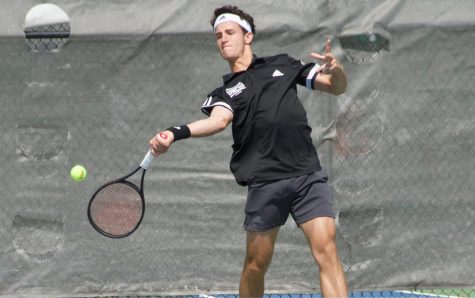Athlete’s Perspective – What it takes to win
Having a gold medal placed around my neck at last year’s Colonial Athletic Conference Swimming and Diving Championships in front of all of my friends and family was one of the best feelings in the world. All of my hard work and dedication paid off when I stood on that podium, surrounded by my teammates and coaches. In that moment, I had reached the top and nothing else mattered. But in order to even have a chance to win, I, like all other student-athletes, had to make many sacrifices.
Many athletes’ first response to what must be sacrificed in order to be a student-athlete is time. Alarm clocks go off at ungodly hours for morning practices, followed by multiple classes during the day and sometimes, a second practice. Add in meals, homework, and time in the training room, and there is little time to sit still.
“Being a student athlete requires a very high level of discipline in making and sticking to a schedule,” said Paul DeVito, a senior member of the Track and Field team at Georgia Tech.
Games or meets can take up entire weekends, which is typically the normal student’s ideal free time to socialize and relax. Social lives outside of the team are given up for ten-hour bus rides to travel competitions. Holiday breaks are cut short for training or competitions or both, and time spent with family or friends from home is often short-lived.
One of the biggest sacrifices I’ve had to make is winter break, a time many spend relaxing from fall semester and enjoying their time home. Every year, I am required to return to Wilmington two days after Christmas to intensely train until school starts again in January. New Year’s Eve celebrations are practically a fairy-tale for my teammates and I because we spend that time in the pool.
Busy practice and meet schedules can also affect student-athletes’ lives in the classroom. Missing class for travel games, not having enough time to complete homework, and having to do an extra semester are just some examples of what student-athletes must deal with. Stephanie Forlenza, a UNCW swimmer alumni, did not graduate last spring with the class she came in with. Instead, she is finishing out her biology major and chemistry minor this semester because she could not fit in the hours needed to complete her degree while also putting in over twenty hours a week for swimming.
“There just wasn’t time,” said Forlenza. “Especially in the last two years when the team got more intense.”
This is a sacrifice that not only requires time, but also money. An extra semester adds thousands of dollars to a college price tag. Dollars that average students don’t have to worry about.
Being a student-athlete can also affect one’s life after college as well. Dedicating upwards of twenty hours a week to a sport makes any internships or jobs out of the question. Many employers want to see experience in your field on your resume, and with sports not allowing any time for that, many athletes feel they are starting behind the average student after college.
However, every sacrifice a student-athlete makes is rewarded. The intense student-athlete lifestyle filled with early mornings and grueling practices is worth the conference ring at the end of the year. The missed classes and extra semesters are a simple trade-off for the love of the sport. The isolated social life is replaced with a family that won’t turn their back on you.
“It’s been the experience of a lifetime. I have met a ton people that I will be close with for the rest of my life,” DeVito said. “I have gotten to go through something that very few people get to do.”
But for all of the sacrifices student-athletes give, the reward for their efforts is present every time they represent the university competing in their sport.
“I’m not giving anything up,” said junior swimmer Matt Byrd. “I love what I do.”










